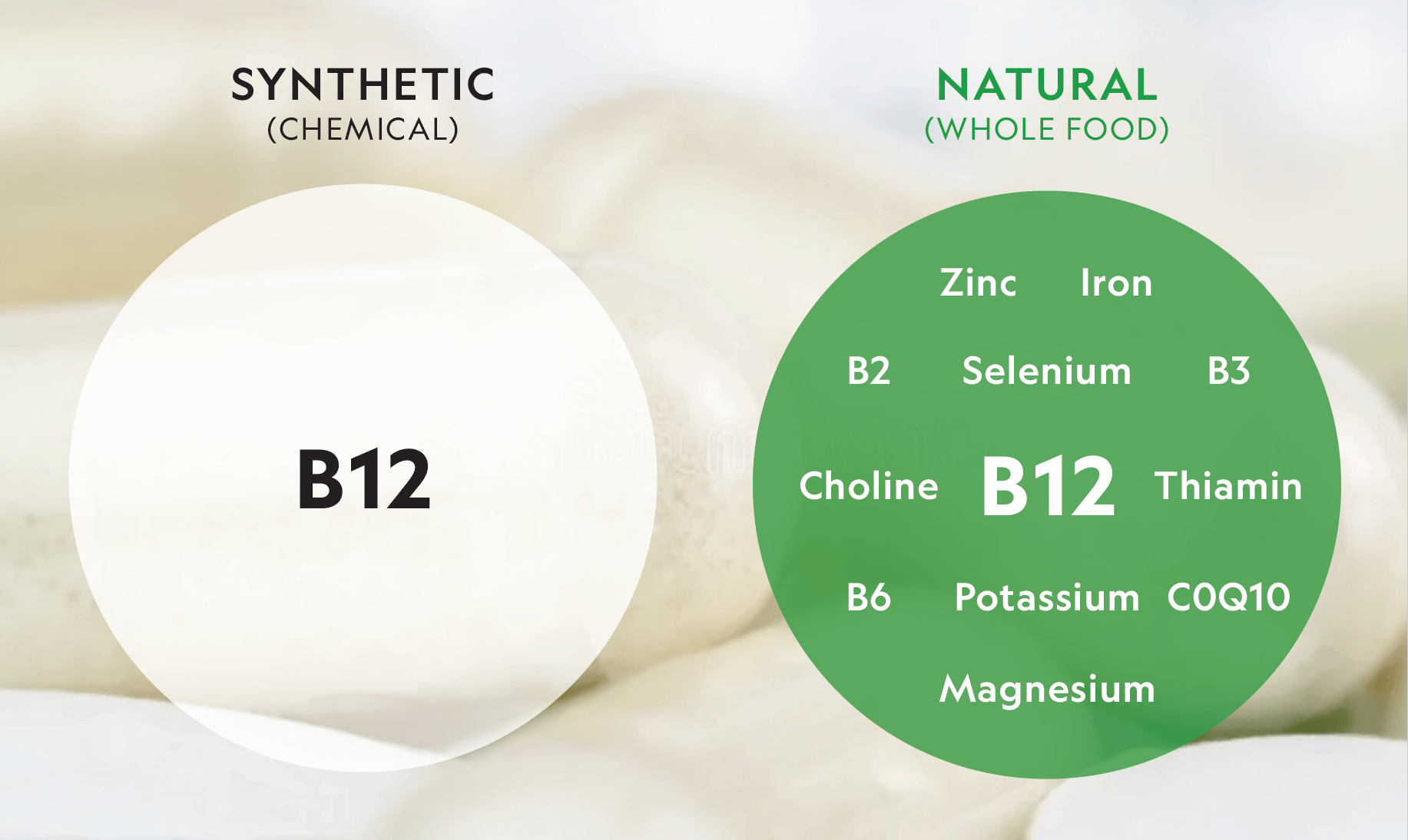
Author: Mikki Williden, PhD
Nutraceutical supplements stand alongside your usual supplement range but are quite different. A nutraceutical refers to a product that is derived from a naturally occurring food source and brings with it the health benefits of the entire food matrix working together. Synthetic supplements, where the micronutrient is produced in the laboratory are either single supplements or combined with other micronutrients but may not be in the amounts that are physiologically of use to the body. The use of nutraceuticals is increasing in response to a modern food environment that makes it more challenging to meet daily nutrition needs from the food supply alone, be it due to accessibility of nutrient-rich food, or lack of time for food preparation. In addition, many of the foods that were historically relied on to provide nutrients are now grown in soil that is no longer rich in those nutrients, making it harder to derive these from the diet.
Synthetic supplements are created in a laboratory and often contain fillers which some people may be allergic or intolerant to such as wheat, gluten and soy. Further, nutrient interactions aren’t always accounted for in a single or multivitamin and mineral supplement. There is a fine balance that we need for copper and zinc, for example, or iron and manganese that may not be present in a synthetic product. If there is too much of one nutrient (such as calcium), this may block the absorption of another nutrient (such as iron), and the most commonly available synthetic products are often not produced to reflect that, and there have been reports of misuse or overuse of single nutrients that have unintended consequences.
Nutrients do not work in isolation in the body, and instead work alongside others as co-factors and co-enzymes to support physiological processes. Food synergy states that a food is much more effective in its whole form rather than in the single components that it provides. While we know many of these interactions and relationships, which may be replicated by the supplement producer, we are unable to account for the complex interaction of nutrients that we do not know about. Every week it seems there is another discovery of a compound that is found to benefit a nutrient pathway in the body which we weren’t aware of before. A nutraceutical product, where a whole food source has been freeze dried in its whole form will naturally provide all necessary nutrients, co-factors and enzymes to allow the nutrients to work synergistically in the body. Organ meat supplements that are freeze dried retain all of their nutrients with minimal risk of micro-organism or pathogen growth, and are much richer in micronutrients than muscle meat, which makes them a concentrated source of nutrition that a person may not otherwise have available.
There are questions over the bioavailability of synthetic supplements when compared to what would be found in whole food, though this is an area where more research is required. For example, nutrients from whole plant sources were more bioavailable compared to their synthetic counterparts in this study here. Other issues with synthetic supplements arise when we consider the quality of the nutrient used. Synthetic cynacobalamin (B12), for example is most often used in B12 supplements as it is a cheaper form of the nutrient, however this requires conversion into an active counterpart (methylcobalamin or adenesylcobalamin) of which 30-40% of people are unable to easily do due to their gene variants in the methylation pathway. When you are consuming nutrients as part of a whole food source this is not an issue.

